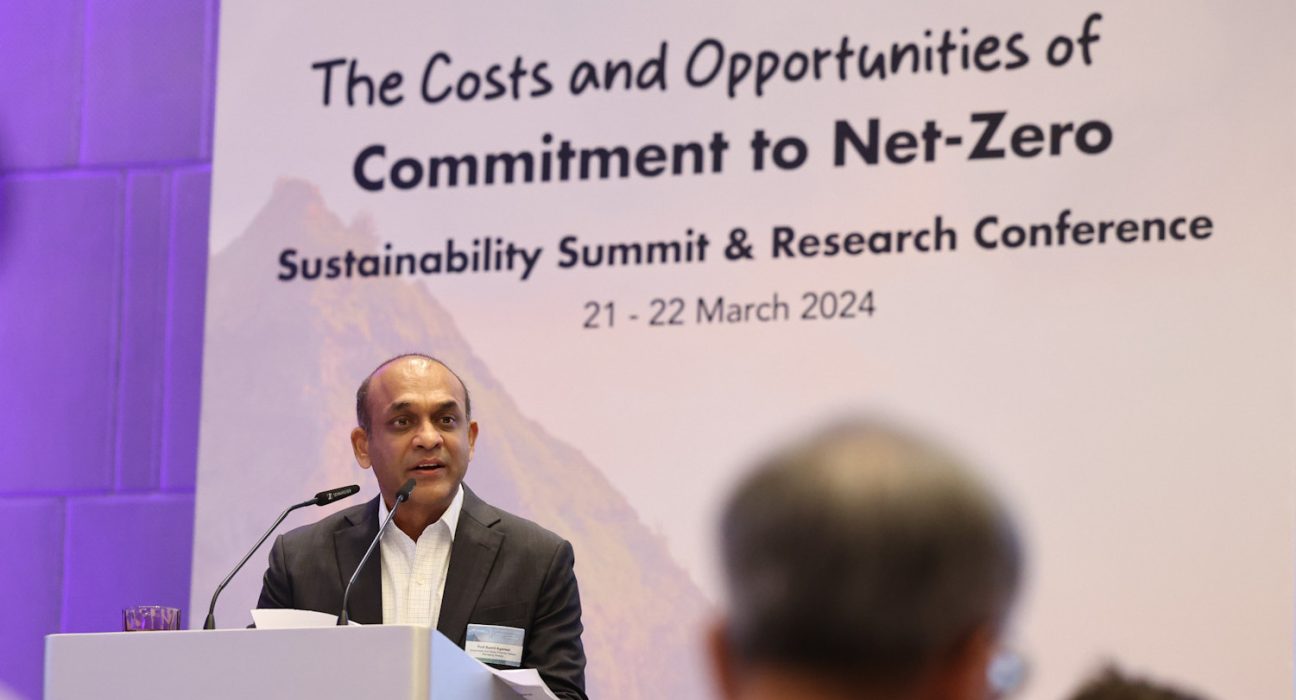The global energy challenge is the quest to find energy solutions that meet three main goals: providing affordable and reliable energy, minimising air pollution – which Prof Greenstone noted is the single greatest external threat to human health globally – and minimising the damages from climate change.
This challenge is especially difficult for developing countries, which have limited resources and must increase their energy consumption to grow their economies. Yet, these countries are the same ones who will need to cut their carbon emissions the most significantly if the world is to achieve the goal of limiting the global average temperature increase to 2 degrees Celsius – a tension that Prof Greenstone describes as the “cruel arithmetic of the global energy challenge”.
The market failures he identified as obstacles to the global energy challenge lie in energy pricing, innovation, and information. Financial markets are directly involved in the first market failure, as energy is currently priced at the cost of production without regard for the cost to human life and the environment.
In order to phase out fossil fuels, energy markets will need to incorporate the social cost of each type of energy into their prices. For instance, natural gas and coal would cost much more than they currently do if their prices included the higher mortality rates and decreased quality of life caused by the air pollution they generate.
Raising energy prices to appropriately reflect the emissions damage, however, will be a major feat, considering that the current average carbon tax globally is US$6 per ton, compared to the latest estimates of climate change damages of US$225 per ton. Prof Greenstone believes that while existing carbon taxes are a step in the right direction, the world needs to take more drastic action to hasten the transition to clean energy.
Governments of wealthier countries must step in to address the second market failure of innovation, which includes technical and policy innovation, because their discoveries will be crucial to managing emissions growth in developing countries that are poised to increase their energy consumption, Prof Greenstone said.
For instance, research in the US revealed that households were proactively making their homes more energy-efficient, rendering a government policy focus on the same issue redundant. Other governments can use such findings to guide their policy design and optimise government spending.
“Policy innovation is a public good just like technical innovation is, because governments that do the experimentation of finding how to make this policy work are going to incur all the costs by themselves, but once it’s discovered, it’s going to benefit governments all around the world,” he said, noting that recent research has estimated that the benefits of such research can exceed the costs by a factor of 17 to 1.
Finally, addressing information gaps will aid in decision-making and driving behavioural changes, which governments can leverage to help their countries deal with climate change challenges. For example, studies have found that informing people about the health impact of air pollution motivated them to purchase N95 masks to protect themselves, and more accurate monsoon forecasting enabled farmers to adjust their farming patterns and achieve better results.
Promoting greater collaboration
Prior to the event, a Memorandum of Understanding (MOU) was signed between NUS and the University of Chicago through SGFIN and EPIC respectively. The MOU outlined the intention of the two institutes to jointly develop research collaboration and initiatives in sustainability, stimulate cross-pollination of ideas on development and sustainability policies and regional green finance frameworks, as well as develop collaborative educational initiatives and curricula on climate, development, and green finance.







